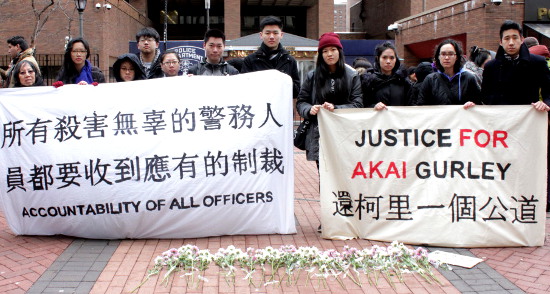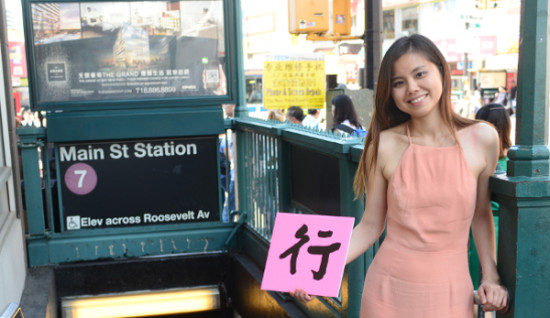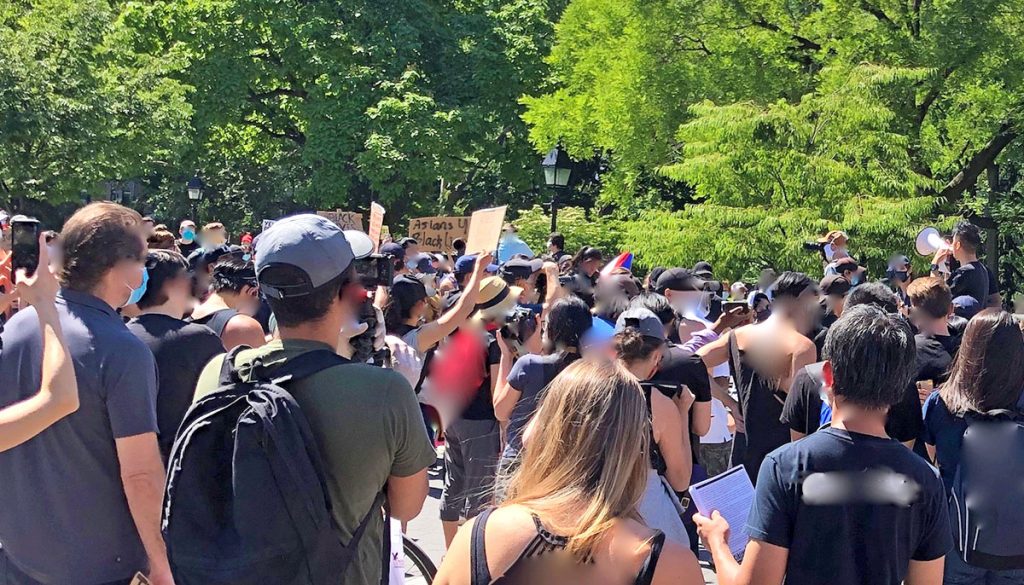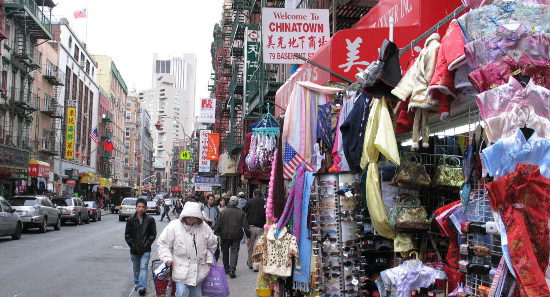The Brooklyn DA wants no jail term for NYPD cop Peter Liang, but several Asian American groups demand accountability for Liang and justice for all victims of police violence.

April 15, 2016
Much of the media coverage of the killing of Akai Gurley focused on how the Asian American community – specifically Chinese Americans – has come out to support the NYPD policeman who shot and killed the 28-year old Gurley.
The NYPD officer, Peter Liang, was convicted of manslaughter in February for the death of the unarmed Gurley in a stairwell of a public housing building in the East New York neighborhood of Brooklyn in November 2014.
The Brooklyn Supreme Court was scheduled to sentence Liang on April 14, but postponed it to April 19 instead. Despite the conviction, and despite the Gurley family and a diverse coalition of supporters across the country demanding accountability for Liang, the Brooklyn district attorney, Ken Thompson, recommended no jail time for Liang.
This recommendation by the Brooklyn DA has added an additional fire to the already heated conversations about racial justice within the Asian American community.
Those supporting Liang argue that he was made a scapegoat by the city police department to ease the tension between the NYPD and the African American community. Many among them claim that Liang was unfairly convicted because he is an Asian American, while white police officers involved in fatal incidents against African-Americans were not.
On the other hand, lost in the media’s myopic preoccupation with the sensationalized Asians-versus-Blacks narrative is the reality that there are people from both communities who are rallying together to support Akai Gurley and to demand an end to over-policing.
#Justice4AkaiGurley
Diane Wong, the point person for the Justice for Akai Gurley campaign at 18 Millions Rising (18MR), said that to win the broader fight for racial justice, police officers shouldn’t be allowed to “murder people with impunity.”
“While Asian Americans do not experience police brutality at the same rate as Black people in this country, we cannot stand on the sidelines in this fight,” Wong said. “Asian Americans can and must show up in solidarity for police accountability with the Black community.”
Wong challenged Asian Americans to channel their frustrations toward leaders who champion broken windows policing and vertical patrol, which adversely affect communities of color.
She also encouraged Asian Americans to think about how police brutality affects the community in different ways.
“’If we want justice for our community, we need to stand up for justice for other communities. We cannot win alone,’ Sultana said.”
She said that 18MR has come up with a video showing several Asian Americans explaining why they are demanding justice for Akai Gurley and all victims of police violence.
The video embraces the voices of Asian Americans across a broad spectrum of identities including elders, public housing residents, queer identifying, and working class folks. They explain why demanding justice for Akai Gurley, as well as other victims of police violence, matters.
The video highlights cases such a Yong Xin Huang, a 16-year-old Chinese student who was killed by the police in 1995, and testimonies explaining the connection between Gurley’s case and systemic racism.
Jensine Sultana, a public housing resident and Bengali American youth leader for DRUM, said there is an absence of empathy between NYPD officers and public housing residents. She said this lack of empathy is the reason why a police officer’s first instinct is to pull out his gun, something he wouldn’t think about doing in a luxury building in midtown, she said.
“If we want justice for our community we need to stand up for justice for other communities. We cannot win alone,” Sultana said.
Wong said in an email that police violence against communities of color, especially Black people, is a systemic problem. “The fight to hold Officer Liang accountable is the first step of many to achieve a transformative vision of what justice could be in this country. We must do our part to hold police officers accountable for their actions: unchecked power puts us all at risk,” she said.



